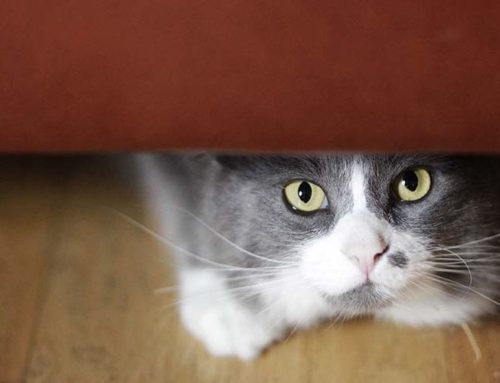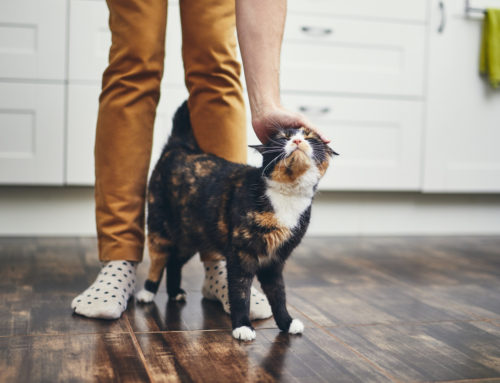Written by Guest Blogger, Simon Campbell
 While cats continue to be the most popular pet in U.S. households, it’s a sad reality that cases of cat and kitten abandonment are underreported and often go unreported altogether. Compassionate pet lovers may be quick to point fingers at owners who leave their pets behind, but when it comes to those facing foreclosure, the reasons for abandonment can be complicated to unravel. Families with felines often feel like abandonment is their last and best option and typically exhaust other resources before taking this last, most drastic, step. Here we review the top four reasons owners abandon their kittens and adult cats and potential solutions that can help.
While cats continue to be the most popular pet in U.S. households, it’s a sad reality that cases of cat and kitten abandonment are underreported and often go unreported altogether. Compassionate pet lovers may be quick to point fingers at owners who leave their pets behind, but when it comes to those facing foreclosure, the reasons for abandonment can be complicated to unravel. Families with felines often feel like abandonment is their last and best option and typically exhaust other resources before taking this last, most drastic, step. Here we review the top four reasons owners abandon their kittens and adult cats and potential solutions that can help.
Lack of Cat-Approved Housing
Perhaps the most common instigator for families leaving their cats or other pets behind after a foreclosure is a lack of appropriate housing options. Most homeowners are forced to either rent or move in with friends or family due to the damage that occurs to their creditworthiness immediately following a foreclosure. Many landlords will not accept pets, or if they do, they often charge large deposit or cleaning fees either up front or as an additional monthly fee. When staying with others, it can be difficult to ask for additional space for a family pet or for asking someone who is already accommodating your family to also accept your cat or kitten.
Food, Shelter and Veterinary Bills Can All Add Up
Families in the midst of foreclosure are often also facing other significant financial strains. It is this underlying lack of funds that has made the family unable to keep up with monthly payments for their home. Even smaller pets such as cats and kittens can rack up the food and housing bills. If fluffy gets sick or even if he or she needs routine veterinary care, these costs can be out of reach for families involved in a foreclosure process.
The Cat Goes Outside Already
When it comes to your average household pets, cats and kittens may be unique in that a significant portion of homes still allow their felines to have free range of both indoors and outdoors. This independence and exposure to an outdoors environment can lead some owners to believe their cats can provide for themselves if abandoned. Unfortunately, this isn’t typically the case. Most household cats that are allowed outdoors venture less than a block away from their home, preferring to stay close to familiar territory. While cats may make seemingly good rodent catchers, most are not able to consistently catch prey for food and still rely primarily on humans for daily sustenance. In short, while a cat may be allowed to roam outdoors at times this does not mean that same cat will be able to survive when their safety net of a family and home is removed.
“Someone Else Will Take Them In”
One of the final common reasons that cats and kittens are abandoned after foreclosure is the mistaken belief that anyone will take the pet in and provide it with food, shelter, and veterinary care. In some cases, families believe that other neighbors will open their doors to roaming cats. Other times, owners will abandon their cats and kittens to shelters and human societies, confident that an adoptive family can be found for their pet.
In a perfect world, this is certainly the case, but the current state of animal overpopulation means that the reality is far sadder. Feral and wild roaming cats are an increasing epidemic in the U.S. For domesticated cats, shelters and rescues are often inundated due to a lack of education regarding spaying and neutering Each of these scenarios causes resources to be stretched thin with the cats becoming victims of an ever-increasing supply of abandoned animals.
The Wrap Up
While each of the above reasons is a major contributing factor to why cats and kittens are abandoned after foreclosure, the situation is far from hopeless. In every case, abandonment should be the last option for families facing the prospect of losing their home. Little known to most homeowners, there is a host of resources available for those who cannot afford to provide food, shelter, and care for their cats or kittens.
Additionally, many shelters, cat sitting services, and boarding kennels provide low or reduced costs boarding while families are attempting to find new housing and settle affairs after foreclosure. Each of these resources can make the difference between your family’s cat becoming abandoned or being allowed to stay with their human family during the time when their comfort and companionship is most needed. If you or a loved one have a cat or kitten and are facing foreclosure, know that there are a variety of resources to help you and your feline family members through this difficult time.
Guest blogger Simon Campbell has spent over 15 years working in various facets of real estate. He has now changed directions and is now sharing his knowledge and experience with others to avoid foreclosure.





